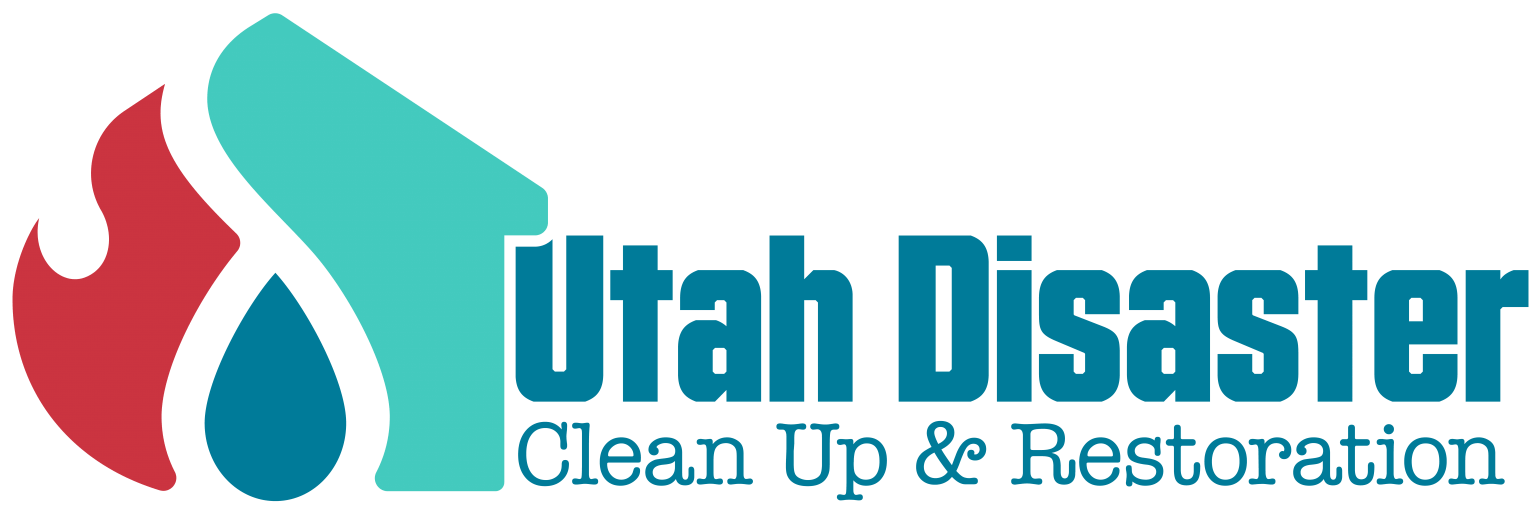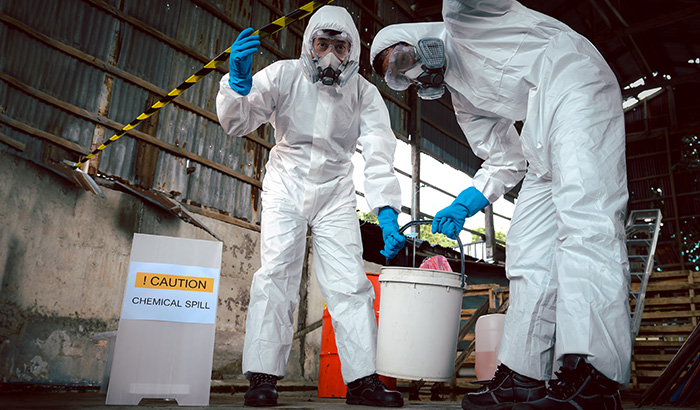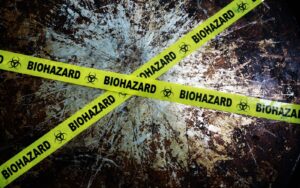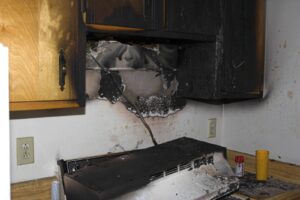Numerous situations demand professional cleanup and restoration due to hazardous materials. While you may know some common reasons, several lesser-known scenarios warrant the expertise of a professional biohazard cleanup team.
This article explores why contacting a professional biohazard cleanup team is advisable and why they are the most suitable choice for the task.
Let’s take a look at 30 of those reasons:
- Crime Scene Cleanup: Crime scenes can be contaminated with biohazards such as blood, bodily fluids, and tissues. Professional biohazard cleanup teams are trained to handle and dispose of these hazardous materials safely. They use specialized equipment, like personal protective gear and containment barriers, to prevent cross-contamination and protect both themselves and the public.
- Unattended Death Cleanup: After an unattended death, decomposition releases harmful biohazards and strong odors. Biohazard cleanup professionals approach these situations with sensitivity, respect, and compassion. They use specialized techniques to clean and sanitize the affected area, ensuring proper disposal of biohazardous materials.
- Sewage Backup Cleanup: Sewage backups introduce dangerous pathogens and contaminants into living spaces. Biohazard cleanup experts employ industrial-grade pumps and vacuums to remove sewage safely. They use hospital-grade disinfectants to thoroughly clean and deodorize the area, preventing the spread of diseases and future contamination.
- Hoarding Cleanup: Hoarding environments can harbor biohazards like mold, bacteria, and animal waste. Biohazard cleanup teams work with hoarders or their families, understanding the situation’s sensitivity. They use appropriate personal protective equipment (PPE) to protect against potential health risks while decluttering, cleaning, and sanitizing the living space.
- Accident Cleanup: Accident scenes, especially those involving trauma or injuries, require specialized biohazard cleanup due to blood and bodily fluids. Trained professionals follow strict protocols to contain and decontaminate affected areas, ensuring thoroughly removing all biohazardous materials.
- Meth Lab Cleanup: Methamphetamine labs are laden with hazardous chemicals and toxic substances. Biohazard cleanup teams strictly adhere to OSHA guidelines and regulations to safely remove and dispose of chemical residues, reducing the risk of exposure to harmful substances.
- Animal Waste Cleanup: Properties affected by excessive animal waste may pose severe health risks. Biohazard cleanup professionals use specialized cleaning agents and disinfectants to sanitize the area, removing harmful bacteria and odors associated with animal waste. They follow local regulations and guidelines for proper waste disposal.
- Infectious Disease Cleanup: Outbreaks or infectious disease-contaminated areas require specialized biohazard cleanup to prevent the spread of pathogens. Professionals employ thorough decontamination methods, using appropriate disinfectants and protective gear to eliminate risks.
- COVID-19 Decontamination: During the COVID-19 pandemic, professional biohazard cleanup teams played a crucial role in decontaminating and disinfecting public spaces, businesses, and homes to limit virus transmission. They use EPA-approved disinfectants and follow strict disinfection protocols recommended by health authorities.
- Tear Gas Cleanup: Tear gas residue can cause respiratory issues and skin irritation. Biohazard cleanup teams safely remove the chemicals using specialized cleaning agents and equipment. They ensure the space is habitable by thoroughly cleaning and decontaminating affected areas.
- Mold Remediation: Mold growth can release harmful spores and mycotoxins, leading to health issues. Biohazard cleanup professionals identify and remove mold colonies, employing proper containment measures to prevent further spreading. They use PPE to avoid exposure during the process.
- Chemical Spill Cleanup: Accidental chemical spills require immediate response from a biohazard cleanup team to contain and safely remove hazardous substances. These professionals are trained to safely handle various chemicals and toxic materials, using proper disposal methods to protect the environment.
- Industrial Accident Cleanup: Industrial accidents may involve hazardous materials or chemicals that necessitate professional biohazard cleanup to protect workers and the public. Cleanup teams employ industry-specific knowledge and safety procedures, ensuring proper decontamination and waste disposal.
- Homicide Cleanup: Homicide scenes can be highly contaminated with biohazards. Biohazard cleanup teams handle these sensitive situations discreetly and compassionately, restoring the area to its previous state using specialized cleaning agents and techniques.
- Suicide Cleanup: After a suicide, biohazard cleanup experts are trained to remove blood, tissues, and other biohazards with compassion and sensitivity. They use hospital-grade disinfectants and take measures to prevent cross-contamination while working discreetly and professionally.
- Mass Casualty Incident Cleanup: Biohazard cleanup teams are instrumental in cleaning up biohazards and mitigating public health risks after large-scale accidents or disasters. They work efficiently to restore order and safety in affected areas while coordinating with relevant authorities and agencies.
- Gross Filth Cleanup: Properties affected by gross filth may contain biohazards like human waste and rotting food. Biohazard cleanup teams use comprehensive cleaning and decontamination methods to restore the property to a safe and sanitary condition.
- Drug Paraphernalia Cleanup: Properties used for drug-related activities can harbor biohazards and harmful substances. Biohazard cleanup experts handle these situations with care and ensure safe decontamination while adhering to local regulations regarding the disposal of drug-related paraphernalia.
- Homeless Encampment Cleanup: Homeless encampments may contain biohazards like bodily fluids and discarded needles. Trained professionals use appropriate safety precautions and disposal methods to clean and decontaminate these areas, making them safe for public use.
- Biohazard Waste Disposal: Biohazard cleanup teams are well-versed in proper biohazard waste disposal, ensuring that contaminated materials are handled, transported, and disposed of following stringent regulations to protect public health and the environment. They work closely with medical waste disposal companies to adhere to all legal and environmental guidelines.
- Fire and Smoke Damage Cleanup: Fire and smoke can leave harmful chemicals, soot, and residue behind. Biohazard cleanup teams use specialized equipment and cleaning agents to safely remove these contaminants, preventing health issues and property damage.
- Water Damage Cleanup: Water damage can lead to mold growth and create a breeding ground for bacteria and pathogens. Biohazard cleanup professionals employ drying and dehumidification techniques to prevent mold and sanitize the affected areas, restoring them to a safe and habitable condition.
- Biohazard Containment and Labeling: Biohazard cleanup teams ensure that all hazardous materials are properly contained and labeled during the cleanup process. This prevents cross-contamination and ensures the safe handling and disposal of biohazardous waste.
- Medical Facility Cleanup: Medical facilities generate biohazardous waste, including contaminated sharps and materials. Professional biohazard cleanup teams adhere to strict protocols for safely removing and disposing of medical waste, following industry guidelines and regulations.
- Public Transportation Cleanup: Public transportation vehicles and facilities may encounter biohazards like vomit, blood, and bodily fluids. Biohazard cleanup teams sanitize these spaces to maintain public health and safety, ensuring they are safe for passengers and staff.
- Emergency Vehicle Cleanup: Emergency vehicles like ambulances may require biohazard cleanup after transporting patients. Professionals thoroughly disinfect the vehicles, ensuring they are free from harmful pathogens and contaminants.
- Commercial Kitchen Cleanup: Commercial kitchens can encounter biohazards like mold, bacteria, and foodborne pathogens. Biohazard cleanup experts use food-safe cleaning agents to sanitize these areas, preventing food contamination and ensuring health and safety standards compliance.
- Fentanyl and Drug Cleanup: Drug-related environments may contain hazardous substances like fentanyl. Biohazard cleanup teams employ particular protocols and safety measures to safely handle and decontaminate drug-contaminated areas, protecting the cleanup team and the public.
- School and Daycare Cleanup: Educational facilities may require biohazard cleanup after accidents or illness outbreaks. Biohazard cleanup professionals disinfect and sanitize classrooms and common areas to protect students and staff, ensuring a safe learning environment.
- Natural Disaster Cleanup: Natural disasters like floods and hurricanes can introduce biohazards like contaminated water and debris. Biohazard cleanup teams respond to these emergencies to prevent health risks and restore affected areas to safety, helping communities recover from disaster-related damage.
Leave The Cleanup to a Professional
There are many reasons why biohazard cleanup should be left to professionals. Here is a look at the most important ones:
- Safety: Professionals are trained to handle hazardous materials safely, protecting themselves and others from potential harm.
- Expertise: They have specialized training and knowledge in biohazard cleanup, ensuring effective and thorough decontamination.
- Proper Equipment: Professionals can access specialized equipment and cleaning agents needed for effective cleanup.
- Preventing Cross-Contamination: They follow strict protocols to prevent the spread of biohazards to clean areas.
- Legal Compliance: Professionals adhere to local regulations for safely handling and disposing of biohazardous materials.
- Compassion: They approach sensitive situations with empathy and respect for the affected individuals.
- Efficiency: Prompt response prevents further damage and reduces health risks.
- Insurance Compliance: Professional services often meet insurance company requirements for claims processing.
- Discretion: They work discreetly, respecting privacy during the cleanup process.
Hiring a professional biohazard cleanup team ensures the safe and effective handling, decontamination, and disposal of hazardous materials. Their expertise, training, proper equipment, and adherence to safety protocols help protect the health and well-being of occupants and the environment while restoring affected areas to safe and habitable conditions.
Safe & Reliable Biohazard Cleanup From Utah Disaster Cleanup & Restoration
For reliable and experienced biohazard cleanup in Utah, choose Utah Disaster Cleanup & Restoration. Our team is trained in best practices, adheres to regulations, and has the necessary certifications.
We offer comprehensive services, including containment, decontamination, and proper waste disposal. We can restore cleanliness and peace of mind during challenging situations with a prompt response and a focus on safety and compassion. Contact us today for professional and efficient biohazard cleanup services.



